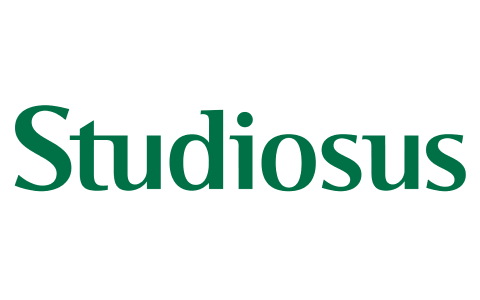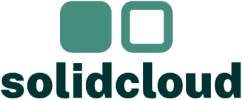Enables real-time reservations with a faster, more responsive booking portal
New portal handles major demand peaks, keeping customers satisfied
Technology stack is now guaranteed by SAP to be fully maintained, 24/7
Conversion rate increased by 40% since using Google Cloud
Studiosus migrated a large part of its 40-year-old on-premise system to Google Cloud to improve its scalability, enable real-time bookings, and boost customer satisfaction.
Studiosus migrated a large part of its 40-year-old on-premise system to Google Cloud to improve its scalability, enable real-time bookings, and boost customer satisfaction.
The global travel industry has taken big strides toward recovery since the pandemic, with the industry set to reach just 5% below 2019 pre-pandemic levels in 2024, with a GDP contribution of $9.5 trillion. With the sector getting back to full health, it now faces questions about how it will evolve during the rest of the decade and beyond.
Throughout its 70-year history, German travel company Studiosus has seen the travel industry make huge changes before. From its first bus trip to the Balkans in 1954 to becoming the market leader in study tours, Studiosus has created its own successful niche in the travel industry. But to maintain its reputation as an innovative, forward-thinking company, it had to embrace the cloud and move beyond its old on-premises infrastructure. So it turned to Google Cloud.
Studiosus's on-premise system was built more than 40 years ago, on its technology stack at that time: COBOL. But the company had to keep modernizing its infrastructure to react to changing technological demands, which is time-consuming and expensive. At a certain point, running these multiple systems, such as quality assurance and production, on premises made it more and more difficult to run in sync. COBOL was no longer able to adjust itself quickly enough for the company's changing business demands. "Some of Studiosus's systems started to run into timeouts and we knew we had to do something," said Frank Miedreich, CIO, Studiosus. "It became clearer that the on-premises infrastructure would not scale, and the new services, with their increasing complexity, needed more flexibility to accommodate growth."
The only way to scale on premises is to buy additional resources to handle the expected maximum demand. If a system is failing, or not available, this can affect vacation bookings, particularly when demand is high, impacting both customer service and the company's reputation. Studiosus knew that its on-premises infrastructure was holding it back.
Creating a hybrid infrastructure that really works
Coming from an old IT architecture, this was a big step for us. And with the team at Google Cloud, we found people that were able to understand our business needs. They were honest and patient, and that was certainly one of the key factors in choosing them.
Frank Miedreich
CIO, Studiosus
After reviewing a number of hyperscalers, Studiosus chose Google Cloud. Not just for its technological capabilities, but also for the personal attention and service that the company got during its journey from on premises to hybrid. "Coming from an old IT architecture, this was a big step for us. And with the team at Google Cloud, we found people that were able to understand our business needs. They were honest and patient, and that was certainly one of the key factors in choosing them," said Miedreich.
Google Cloud connected Studiosus with official Google Cloud Partner happtiq, which provided Studiosus with technical support, allowing the company to move at its own pace throughout the migration. The first step was to create the new booking portal, so Studiosus could handle any major demand peaks and keep its customers satisfied.
Studiosus upgraded its technology infrastructure so it could run its dedicated services on Google Cloud. By moving to a cloud infrastructure, based on microservices, information such as availability and prices was now synchronized in real time to the new booking application. On the old booking portal they were only synchronized every six hours.
Studiosus established a partner interconnect between its on-premises infrastructure, where the company still runs the reservations, and Google Cloud. With this direct connection in place, Studiosus can directly book the tour in its reservation system in real time. This has made the booking experience faster and more responsive, and since the migration to Google Cloud, the conversion rate increased by 40%.
"It's immediate, responsive and feels good. We have more trust in the website, and we're measurably improving across a number of areas, including performance, stability, responsiveness, and currentness. This explains the improvement in real booking numbers and the conversion rate," said Miedreich.
Migrating SAP seamlessly to the cloud
Studiosus then turned to its SAP workloads. It had been running SAP on premises for a few years, but had been encountering difficulties with the infrastructure. As the system grew larger and the number of requests got higher, the company experienced longer response times and had to run maintenance across all of its different systems. SAP as an additional workload required additional human resources and extra time, and was becoming more difficult to handle. Within two years it would have been impossible to effectively run SAP on the company's on-premises infrastructure.
Google Cloud introduced Studiosus to official Google Cloud Partner Solid Cloud, which presented a plan to migrate the company's entire SAP infrastructure to the cloud using SAP on Google Cloud. As soon as the migration was complete, the performance of the SAP system improved, even though the size of its virtual machines wasn't any bigger than the original on-premise machines. All the upgrades are now handled in the background, with no additional human resources required from Studiosus.
Since the migration to Google Cloud, we now know that the technology stack is guaranteed by SAP to be fully maintained, without anybody needing to read SAP notes. So this has helped create a better user experience, reduced maintenance on our side, and made our employees happier.
Frank Miedreich
CIO, Studiosus
"Since the migration to Google Cloud, we now know that the technology stack is guaranteed by SAP to be fully maintained, without anybody needing to read SAP notes. So this has helped create a better user experience, reduced maintenance on our side, and made our employees happier," said Miedreich.
A growing, secure cloud ecosystem
With happtiq's support, Studiosus has continued its Google Cloud journey with the implementation of a robust business-continuity setup using Google Workspace. This allows Studiosus to seamlessly maintain communication and operations even in the event of technical disruptions or other challenges, ensuring that Studiosus's critical business processes always remain secure and efficient.
Studiosus has also integrated Chronicle, Google's cloud-native security operations suite, to protect its systems against threats and potential attackers. With Chronicle, Studiosus can ingest and analyze all its data and retain it for longer periods, eliminating the data blind spots that can ultimately lead to missed threats, and giving it the ability to detect and investigate attacks at every stage.
Building safer journeys with AI
Studiosus is now exploring ways to integrate AI across the business and is already developing a new security alert system using Vertex AI. To ensure the safety of its travelers, Studiosus is subscribed to a security bulletin system that alerts the company of any active security concerns in countries around the world. Studiosus received more than 100 email alerts per day, but many were not relevant to Studiosus's customers and manually sorting through the alerts to find the relevant ones took considerable time.
Together with happtiq, Studiosus used Vertex AI to build a custom machine learning model and event pipeline to automatically classify and filter messages for relevance and publish the notification to Studiosus's internal systems, reducing the manual effort by around 75%.
A future that everyone can get behind
The main advantage for me is that I’m very relaxed about all the systems that are running on Google Cloud. I can be sure that there's not going to be a late night phone call if we have a problem in some server room. And that means that we can have our weekends for ourselves.
Frank Miedreich
CIO, Studiosus
The future for Studiosus is to completely migrate to Google Cloud, at its own pace, to ensure everyone remains on board. Miedreich appreciates the patience of the Google Cloud and happtiq teams, as they work together to ensure that all team members at Studiosus are as comfortable with the new systems as he is.
"The main advantage for me is that I'm very relaxed about all the systems that are running on Google Cloud. I can be sure that there's not going to be a late night phone call if we have a problem in some server room," said Miedreich. "And that means that we can have our weekends for ourselves."
Studiosus is a European market leader in cultural tours. Together with tour operator Marco Polo, the group offers 900 routes to more than 100 countries worldwide.
Industry: Travel & Hospitality
Location: Germany
Products: Google Cloud, SAP on Google Cloud, Cloud Storage, Vertex AI
About Google Cloud Partners
happtiq, a cloud consulting and integration company, adopts, implements, and leverages the cloud following best-practices for its customers.
Solid Cloud GmbH supports businesses with expert SAP solutions, specializing in migrations, SAP Basis and HANA consulting, and efficient managed services for optimal SAP system operation and performance across any environment.














